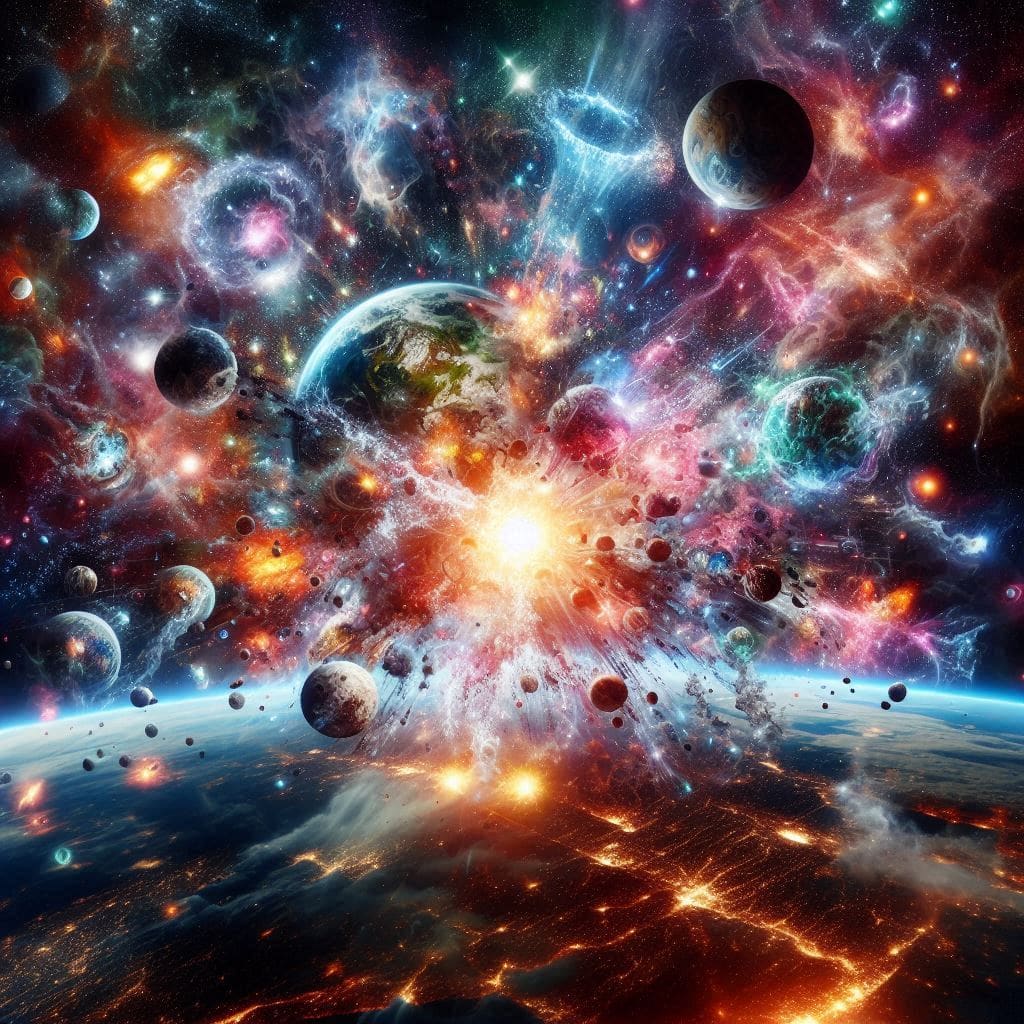Ending Of Universe
how will universe end?can any theory explain it?

Exploring the intriguing concept of the Big Crunch unveils a captivating counterpoint to the widely accepted Big Bang theory. While the latter describes the explosive genesis of the universe, the former posits a cyclical narrative wherein expansion eventually yields to contraction.
Central to the Big Crunch theory lies Einstein's theory of general relativity, a cornerstone of modern physics. This theory elucidates the dynamic interplay between matter, energy, and the curvature of spacetime. According to its tenets, if the universe's expansion stems from the initial force of the Big Bang, it follows that gravitational attraction will eventually counteract this expansion.
Visualize the universe as a cosmic symphony, with each celestial body playing its part in the grand orchestration of cosmic events. Initially, the orchestra swells with the crescendo of the Big Bang, as galaxies race away from each other amidst the cosmic overture. Yet, as time marches on, gravity's pull begins to exert its influence, drawing the disparate cosmic players back towards a common center.
This gravitational tug-of-war marks the onset of the Big Crunch, a cosmic ballet in which the universe contracts inward, folding back upon itself like a vast cosmic origami. As galaxies, stars, and planets converge, the universe's fabric ripples with the intensity of gravitational forces. Eventually, all matter and energy coalesce into a singular point of infinite density and temperature—a cosmic singularity.
In the twilight of the Big Crunch, as the universe hurtles towards its inevitable conclusion, celestial phenomena paint the cosmic canvas with splashes of brilliance and chaos. Supernovae illuminate the darkness with their fiery swan songs, as stars succumb to the relentless gravitational embrace. Planets, moons, and asteroids spiral inexorably towards their shared destiny, their once-stable orbits thrown into disarray by the cosmic dance of destruction.
Amidst the tumult of cosmic cataclysm, the very fabric of reality itself begins to fray at the seams. Space-time warps and distorts under the crushing weight of gravitational forces, rendering conventional notions of time and space obsolete. In this chaotic maelstrom, the universe as we know it ceases to exist, giving way to a realm of unimaginable turbulence and uncertainty.
Yet, within the crucible of cosmic chaos, there exists a glimmer of hope—a tantalizing possibility that the collapse of the universe into a singularity could herald the dawn of a new cosmic era. Some theories suggest that this cataclysmic rebirth could initiate a new cycle of creation and destruction, perpetuating the eternal dance of cosmic evolution.
However, the fate of the universe remains shrouded in mystery. Observations of the cosmos have unveiled the enigmatic presence of dark energy, a mysterious force that opposes gravity and propels the universe's accelerated expansion. The interplay between dark energy, gravity, and other cosmic forces introduces a layer of complexity to the cosmic narrative, casting doubt on the inevitability of the Big Crunch.
In essence, the concept of the Big Crunch invites us to contemplate humanity's place in the vast tapestry of the cosmos. Whether the universe faces a dramatic collapse or an eternal expansion, the journey of cosmic exploration continues, fueling our collective curiosity and awe at the wonders of the universe. As we gaze into the night sky, we are reminded of our humble place in the grand cosmic drama—a speck of stardust adrift in the vast expanse of space and time. The possibilities within this cosmic dance are as infinite and mysterious as the universe itself, urging us to explore, question, and wonder at the marvels that lie beyond our comprehension.
Moreover, recent cosmological research has delved into the potential implications of quantum mechanics on the fate of the universe. Quantum fluctuations, inherent to the fabric of spacetime, may play a pivotal role in shaping cosmic events on both macroscopic and microscopic scales. These quantum phenomena add another layer of intrigue to the cosmic narrative, challenging our understanding of fundamental physical principles and opening new avenues of exploration in the study of the cosmos.
About the Creator
Asma.Md
i'm a person with degrees & medals in science and writing fields on a mission to bridge a gap between complex concepts and curious minds.engaging narratives that spark fascination. Join me as i journey through a captivating post at a time.
Enjoyed the story? Support the Creator.
Subscribe for free to receive all their stories in your feed. You could also pledge your support or give them a one-off tip, letting them know you appreciate their work.





Comments
There are no comments for this story
Be the first to respond and start the conversation.